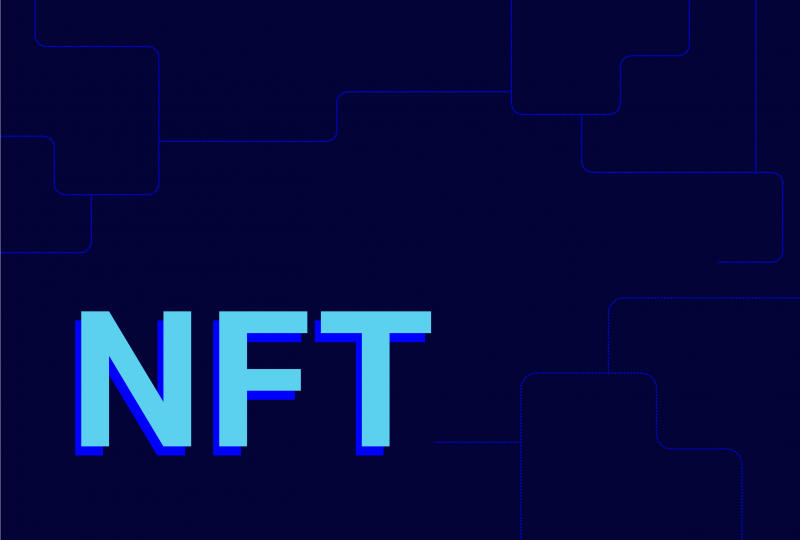How Are NFTs Taxed in the US and Globally?
Sep 30, 2022

Cyberspace is currently causing the emergence of various types of technologies. Many countries are already actively working on national programs to develop the digital economy, which will contain the main steps for its implementation, and create roadmaps in the field of robotics and sensors, neurotechnologies and artificial intelligence, wireless communication networks, quantum technologies, and distributed registry systems.
One of the developing technologies for distributed data registries is blockchain. From a technical point of view, blockchain technology allowed the introduction of various digital tools. One of them is cryptocurrency. The increase in operations with it caused the need for research on the methods of use and regulation of legal relations. Also, the concept of a "token" has firmly entered economic practice, and the idea of "tokenization" has appeared, denoting the process of creating tokens.
One type of such token is an NFT (non-fungible token). The emergence of this instrument and transactions with it has raised many legal and accounting issues. In particular, along with the presence of an active market of such tokens, their legal status is not clear. There are no principles of their legal regulation in international practice or a standardized process of their accounting and especially taxation.
This article will reveal the essence of the concept of the "NFT," the features of NFT taxation and related misconceptions, the principles of NFT taxation in the United States and international practice, and, finally, the prospects associated with the development of these token taxation mechanisms in the future.

What are NFTs?
A non-fungible token (NFT) is a cryptographic token that is derived from smart contracts in Ethereum. Its main uniqueness from other crypto tokens like Bitcoin is that one NFT cannot be replaced by another. Each NFT is a completely unique token that is attached to a specific digital file, which then makes the file unique. Even if someone tries to copy your file, the NFT token itself will remain original and will be in your ownership. NFT cannot be divided or replaced, so it can be compared to a completely unique item in the real physical world.
NFT first appeared on the Ethereum network in 2017 in a game called Crypto Kitties, in which you can grow and breed crypto assets in the form of cats. An individual сryptocat is the epitome of NFT mechanics. It can't be separated, it has a unique number, a genome of 256-bit DNA, and 12 attributes that can be passed on to descendants — eye color, mouth shape, and more. Information about the creator of the cryptocat, as well as its virtual offspring, is embedded in the NFT. In 2018, the most expensive cryptocat was sold for $140,000.
Considering NFT from the perspective of the blockchain, this is a registry entry that carries a certain set of instructions and owner rights. Thus, by purchasing a file with an NFT attached, you also acquire all rights to it and ensure that the file is original.
While NFT started out as essentially a toy for collectors and a chance for artists to make money, NFT is now seen as a promising solution for protecting intellectual property and regulating the circulation and pricing of digital goods. This becomes possible because NFT not only confirms the originality of a file but also carries information about its properties, which also cannot be separated or copied.
Technically, NFT is no different from other crypto tokens. It also involves blockchain, smart contracts, encryption, and addresses. NFT most often relies on smart contracts for its operation, so it predominantly operates on the Ethereum network, and all transactions occur in the ETH currency. If someone claims to own intellectual property based on NFT, they essentially own the original portion of the hex values signed by the creator. Others are free to copy the raw data but cannot claim ownership. Based on this, it can be seen that NFT-related actions (buy, sell, trade, auction) must be handled according to a similar basic smart contract processing procedure.

NFTs Taxation: Features and Misconceptions
At present, the generally accepted package solution for taxing NFTs remains uncertain. This is because the tax treatment of NFTs requires different considerations to characterize and apply them to existing global tax rules. Another potential issue is the valuation of NFTs for tax purposes, as there is limited guidance in this regard.
Digital technology has given impetus to a rise in cross-border transactions and has increased the importance of interstate cooperation in the NFTs tax sphere. Experts note that the introduction of cross-state tax regulation can raise sovereignty issues for countries. Nevertheless, international coordination in the taxation of crypto assets such as NFT is inevitable. Amid the incredibly rapid growth in the popularity of digital assets, the overall pace of digitalization has accelerated further. At a time of such rapid growth of interest in digital assets, the problems concerning their taxation have also become more acute.
Much work on international NFT tax rules is being done by bodies such as the G20 and the OECD. It is believed that digitalization as such is ubiquitous and does not create unique problems but exacerbates the problems of international taxation of NFT and other financial instruments.
It is likely that companies will look for new ways to optimize taxation by taking advantage of modern technology and virtual spaces. Some authors argue that the scale of the NFT industry and its potential social significance can be unpredictable and are already considering the limits of government intervention in this sector. We can assume that in the next decade, the virtual world will become so developed that companies will not only be able to acquire NFT collections but also create their own unique tokens, which, in principle, we can already observe. In the tax context, there are several possible developments, from the extension of traditional taxation rules to NFTs to the complete absence of taxation, making them virtual tax havens.
Although states attempt to ensure control over all virtual transactions, blockchain technology theoretically allows participants in transactions with virtual assets to remain anonymous, making tax NFT control and administration more difficult. Thus, the second option, the absence of regulation in the medium term, seems more likely.
NFTs Taxation Principles in the U.S. and Globally
Digital assets are notoriously difficult to tax because of the lack of transparency about who owns and trades them. This is especially true for non-fungible tokens (NFTs), which are unique digital assets that cannot be exchanged for interchangeable ones like traditional cryptocurrencies.
As the NFT industry develops, more and more countries are thinking about introducing revenue regulation instruments related to transactions involving the purchase and sale of such tokens. Let's look at several examples of legal regulation of NFT in terms of taxation:
USA
Two states have recently taken certain steps, becoming the first in the U.S. to explicitly list NFTs as digital assets subject to sales and use taxes. Pennsylvania's and Washington's actions show a growing understanding of the tax implications of NFTs, as well as a willingness to adapt existing tax laws to this new asset class. The Pennsylvania Department of Revenue was the first to act, adding NFTs to its "tax matrix" without any accompanying guidance. A little later, Washington State also followed suit, issuing an interim statement suggesting a framework for determining the "source" of NFTs (or where related transactions physically occur for tax purposes).
The current ecosystem around NFT is unclear about the identity of buyers and sellers, down to where they are located. In addition, the way NFTs are currently used — often as unique digital collectibles rather than for business purposes — means that there is no easy way to value them for tax purposes.
Pennsylvania's and Washington's states' actions demonstrate a recognition of the need for clarity in the taxation of NFTs, even as the asset class continues to evolve. As NFTs become more popular and options expand, other states will likely follow suit and clarify their position on taxation.
India
In mid-March 2022, India announced the introduction of taxes on income from cryptocurrencies and NFT. The country's Finance Minister, Nirmala Sitharaman, announced that revenue from any virtual assets would be taxed at 30%. The proposition comes amid active penetration of cryptocurrencies and NFTs in the Indian market, as well as the growth of transactions with these assets, despite the uncertainty of regulation in the country. However, it is not clear whether India recognizes cryptocurrency as a legal tender or just wants to collect some money from crypto market participants, investors say. Darshan Bathija, co-founder and CEO of cryptocurrency exchange Vauld, believes that introducing a tax rate would make cryptocurrency trading in the country official, as well as relieve any concerns about its prohibition.
Singapore
Singapore is yet another country that has announced a tax on income derived from NFT transactions. On March 11, 2022, Singapore's Finance Minister Lawrence Wong announced that the tax would apply to those who derive income from NFT transactions or trades. In addition, the minister stated that as Singapore does not have a capital gains tax regime, the country will not tax capital gains from NFT.
First of all, Singapore will tax all individuals who earn through NFT trading. But it will not tax the income of individuals who earn capital gains from NFT transactions. The Singapore Revenue Authority has set some parameters to determine whether an individual trades NFT or earns income from NFT transactions.
These include the nature of the asset, the intent to purchase, the holding period, and the frequency and volume of similar transactions. The Authority will also take into account any financial arrangements for holding the asset for an extended period and the reasons for disposing of it.
Prospects For the Development of NFT Taxation Mechanisms
Today, a paradoxical phenomenon is observed in the field of taxation of NFT-related transactions: there is a significant gap between the development of technology non-fungible tokens and the emergence of global regulatory tools, and this, in turn, in the near future may cause serious problems for both participants in NFT transactions and national financial supervisors.
As theoretical options for the development of mechanisms of tax regulation of NFT in world practice, it is possible to allocate the following:
1) The priority of tax regulation
In this case, the various NFT marketplaces will report to the tax authorities of all countries. There will be appropriate services for the correct and timely calculation of taxes and fulfillment of tax obligations. Using anonymous NFT outside the law and marketplace will become illegal. In fact, each wallet will have some way to determine its owner (for example, through an external service), and wallets with unknown owners cannot be used to purchase NFT in legitimate marketplaces. Accordingly, all NFT transactions will be transparent and subject to taxation under special norms or along with regular transactions;
2) Technological priority
Due to the current complexities of accounting and calculating taxes related to NFT, the tax authorities may refuse to track transactions related to the purchase and sale of NFT, including due to the difficulty of verifying such transactions and the inability to account for all aspects. In addition, the smart contracts used in creating such tokens are a complex technology that provides a high level of security and anonymity, which may become a severe obstacle to the tax authorities' ability to control the transactions.
It is this option that seems most realistic because of the ease of development. Although taking into account the recent trends towards total traceability of transactions, the first option is also possible. Moreover, NFT may become a convenient way for states to track financial transactions.
Conclusion
To summarize all the above, it can be said that, since the development of the crypto industry and particularly the NFT sector in all areas of the economy gathers pace, the methodology of NFT taxation must undergo changes. However, there is a significant lag between the current practice and the availability of the market for new digital products. The emerging relations in cyberspace and new tools and technologies cause many questions that are not reflected in the legislative regulation of taxation processes. The market of non-fungible NFT tokens is actively developing in cyberspace. With significant volumes of transactions, their legal and regulatory law does not meet the current realities of the information society. Identifying NFT as a taxation object reveals a partial or complete inability to refer to specific taxation objects specified in the federal taxation standards. Therefore, comprehensive development of a methodology for taxation for specific digital products such as NFT and its regulation both at the level of national standards and in the taxation standards of the organization is needed.




